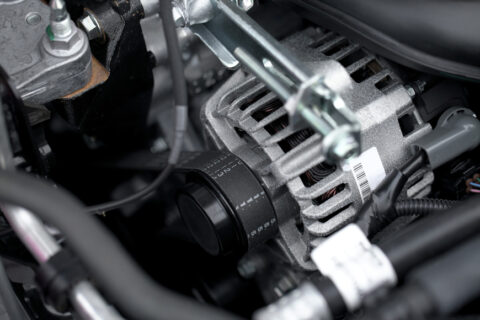Regular brake checks are a crucial part of your vehicle’s preventative maintenance. These checks can help identify potential issues before they affect your braking performance, giving you the chance to restore your vehicle’s braking system to its optimal condition. If you’re noticing any issues or just want peace of mind, schedule a brake inspection with Brentwood Rd Vehicle Repairs. Our experienced technicians will provide a free brake inspection and, once completed, you’ll receive a detailed report along with a quote for any recommended repairs. For safety’s sake, it’s important to have your vehicle inspected as quickly as possible when you notice any of the below symptoms.
Your safety matters to us, book your appointment today!
When do I need a vehicle brake inspection?
Grinding
If the friction material on your brake pads wears down too much, it can cause a grinding noise as the pad contacts to the metal caliper. This can damage the brake discs, leading to repair costs that are often more than twice as much as simply replacing the brake pads.
Squeaking
A squeaking noise might suggest that the brake caliper has seized, keeping the brake pad in partial contact with the disc. Alternatively, some brake pads come with wear indicators that emit a squeak when they’re worn down, signaling that it’s time for a replacement. Regardless of the cause, it’s essential to have your brakes inspected promptly.
Pulsating
If you notice a constant vibration or pulsation in the brake pedal when braking, it could indicate a warped brake disc caused by excessive heat. This happens because the disc is no longer perfectly flat, resulting in uneven contact with the brake pad. If the pulsation only occurs during firm braking, it may simply be the ABS engaging. However, if the pulsation happens regularly or if you’re concerned, it’s a good idea to have your brakes checked.
Vehicle Pulling
If your car pulls to one side when braking, it may be caused by a sticking hydraulic or mechanical component, like a seized caliper. A thorough inspection will help pinpoint the exact cause of the vehicle pulling to the left or right.
Sponginess
Does your car’s brake pedal feel soft and unresponsive? This could indicate that air has entered the brake lines, preventing the brake fluid from flowing properly through the system.
Soft Brake Pedal
If the brake pedal in your car feels soft and sinks to the floor, it signals a serious issue with the braking system that requires immediate attention. This could mean the brake fluid is ineffective and needs to be replaced. However, there may be other underlying causes, such as a problem with the master cylinder.
Brake Warning Light
If a brake warning light appears on your dashboard, either continuously or when you apply the brakes, it may indicate that your brake fluid level is critically low. Many vehicles have multiple brake warning lights for different situations – one for the brake fluid, another for the braking system electronics, and a separate light for the electronic parking brake if your car is equipped with one.
High Handbrake
If the handbrake is pulling higher than usual, it may require adjustment. In most modern cars, this is typically more than 6 to 8 clicks. If the handbrake lever reaches the end of its travel, it will fail the MOT, so it’s a good idea to have it checked.
Old Brake Fluid
If your brake fluid is over 2 years old, it may be losing its effectiveness. This is due to its hygroscopic nature, meaning it absorbs moisture over time, which can compromise the fluid’s performance and affect your braking ability. Brake fluid should generally be replaced every two years, but it’s a good idea to consult your manufacturer’s handbook to confirm the recommended interval.


